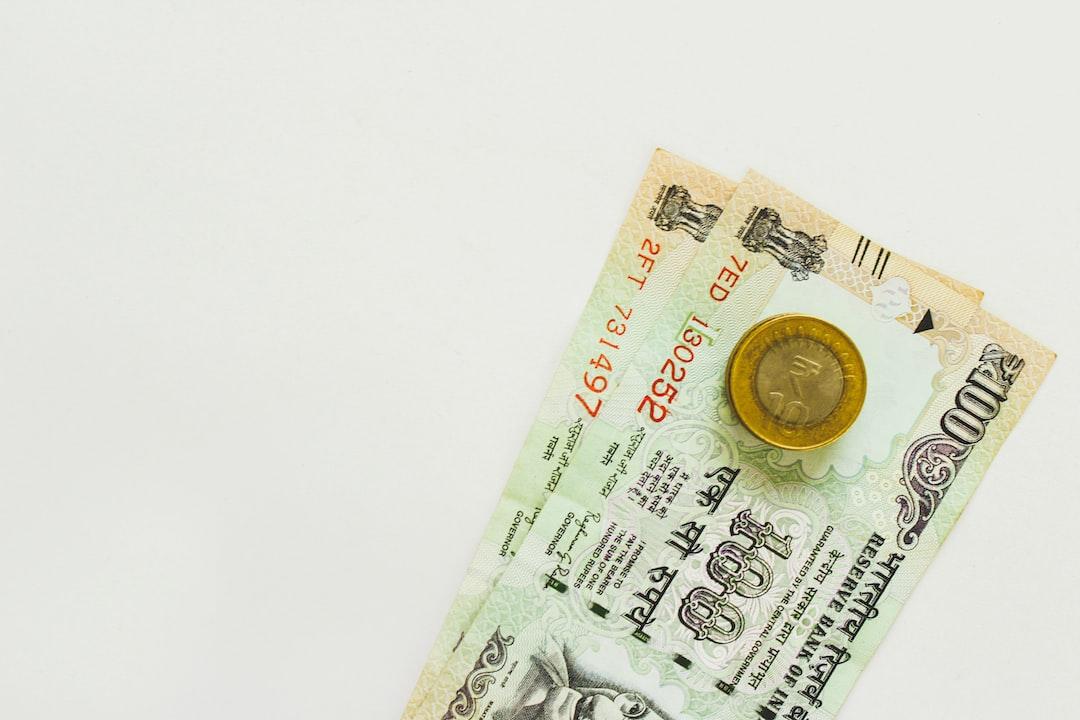SEC Turns Its Attention to DeFi Leader Uniswap! Founder: Ready to Fight
The US Securities and Exchange Commission (SEC) is further tightening its regulatory grip on the cryptocurrency industry. After a round of penalties and lawsuits against major centralized exchanges and cryptocurrency companies, the SEC is now extending its reach to the decentralized finance (DeFi) sector.
In the early hours of today (11) Taiwan time, or April 10 in the US, the SEC officially issued a Wells Notice to Uniswap, the leading decentralized exchange. Following the announcement, the price of Uniswap’s native token UNI plummeted 9% within an hour, and by the time of writing, it had fallen over 16% in a single day, reaching a low of $9.34, the lowest price since late February.
Wells Notice:
When law enforcement officials gather sufficient evidence to believe that the subject of an investigation has violated securities laws, they usually notify the subject through a Wells Notice. This notice informs the subject of the evidence that law enforcement currently possesses and provides an opportunity for the subject to present their own arguments and statements to persuade law enforcement not to take enforcement action.
Although the Wells Notice usually provides an opportunity for the subject to defend themselves, based on the SEC’s past actions, sending the notice is often just a procedural formality, and it often ends up in court.

SEC Allegations: Uniswap is an “Unregistered Securities Exchange” and “Unregistered Broker-Dealer”
Following the SEC’s announcement, Uniswap’s COO Mary-Catherine Lader and General Counsel Marvin Ammori confirmed in a subsequent press conference that they had indeed received the Wells Notice. The notice primarily accuses Uniswap of being an “unregistered broker-dealer” and an “unregistered securities exchange.” It remains unclear whether Uniswap’s native token UNI is considered a potential security in the notice.
Uniswap founder Hayden Adams also confirmed the news on his personal social media account, stating, “I’m not surprised, just frustrated and disappointed, and ready to fight.”
“I believe that the product we provide is legal, and the work we are doing is on the right side of history. But we have also seen that the SEC has consistently refused to provide clear and comprehensive regulatory standards, preferring to use heavy-handed enforcement actions against Uniswap, Coinbase, and other long-standing participants in the industry while overlooking the actions of participants like FTX,” he added.
Is Uniswap in a favorable position? General Counsel: SEC has no jurisdiction over Uniswap’s products
Uniswap is a leading decentralized exchange (DEX) built on the Ethereum blockchain. The platform recently announced on its official website that it has facilitated $2 trillion in trades since its inception.
Unlike traditional brokers or cryptocurrency exchanges, DeFi platforms operate without a centralized organization. All transactions rely on predefined rules and collateral requirements set in smart contracts, which are automatically executed by code.
️Further reading:
A round of layoffs gave birth to Uniswap! How did the 31-year-old founder without programming skills build the world’s largest DeFi kingdom?
In April of last year, six users who lost funds due to purchasing fraudulent tokens on Uniswap filed a lawsuit against the platform, accusing Uniswap and its backers of violating the Securities Act and the Securities Exchange Act. They claimed that Uniswap was an unregistered broker-dealer and exchange, offering unregistered securities, and allowing token issuers to defraud users.

Uniswap is a leading decentralized exchange (DEX) built on the Ethereum blockchain. The platform recently announced on its official website that it has facilitated $2 trillion in trades since its inception.
In August of the following year, the judge presiding over the case ruled that Uniswap’s core smart contracts were not illegal and shared the same opinion as Uniswap founder Hayden Adams, believing that technology is neutral and cannot restrict users’ actions. In this particular case, the judge also refused to expand the scope of the Securities Act to cover the actions alleged by the plaintiffs, stating that the issue of whether cryptocurrencies are securities should be resolved by Congress.
Uniswap General Counsel Marvin Ammori believes that Uniswap’s protocol, web app, and wallet do not meet the legal definitions of a securities exchange or broker-dealer. A few weeks ago, in the SEC’s case against Coinbase, the judge also ruled that Coinbase’s wallet services do not fall under the category of broker-dealer services, so the SEC does not have jurisdiction over Uniswap’s products.
He also pointed out that the Securities and Exchange Commission’s regulatory authority is limited to “securities,” and most cryptocurrencies are not considered securities (or have not yet been considered as such), so the SEC’s actions are overreaching. This was also ruled by a judge in the “SEC vs. Ripple” case, who deemed the SEC’s enforcement actions not based on a “belief in the law.”
However, with the strong support of the White House, it is still difficult to determine the ultimate outcome of the case.
Is DeFi under attack? Coinbase Founder: Use your vote to change the system
By prioritizing enforcement over regulation, the SEC and its chairman Gary Gensler have become the biggest adversaries in the cryptocurrency industry.
The industry accuses them of failing to consider the unique technological background and mechanisms of blockchain, but Gensler counters that the existing securities laws are clear and that the cryptocurrency industry seeks special treatment while failing to comply with these laws. Gensler’s stance has garnered support from powerful allies, including Senator Elizabeth Warren from Massachusetts and the White House.
Ryan Selkis, the outspoken founder of blockchain research firm Messari, expressed his anger, saying, “This is the most corrupt government regime I have ever experienced (and I lived through the Iraq War, which was already a corrupt and corrupting regime).”
Coinbase founder Brian Armstrong invited everyone to use their vote in the November elections to choose cryptocurrency-friendly senators and shared a post from the cryptocurrency community “Stand with Crypto” that said, “DeFi must fight back and change the system through voting.”
Despite the industry’s efforts to push for industry-specific legislation within the current framework, all discussions are at a standstill due to the upcoming presidential election. It seems that until the dust settles on the presidential election, the SEC can still take enforcement action against the cryptocurrency industry nearly 80 years after the definition of securities by the US Supreme Court in 1946. The “Regulation vs. Cryptocurrency Industry” drama will continue.

Uniswap founder Hayden Adams expressed frustration with the SEC’s actions and stated that they are using new technology to improve people’s lives and do not need to hide. Therefore, Uniswap will remain in the US and continue to operate its protocols and products from its office in New York.
“I’m frustrated because the SEC seems more interested in protecting an opaque enforcement system than protecting consumers. We will have to fight against US government agencies to protect our company and this industry.
This fight will last for years and may even need to go all the way to the Supreme Court. It is crucial for financial technology and our (cryptocurrency) industry, and if we stand united, we can win.
I believe it’s worth fighting for freedom, and I believe it’s worth fighting for DeFi,” he concluded.
Sources:
Fortune, Coindesk, Decrypt
Proofreading Editor: Kao Ching-Yuan

